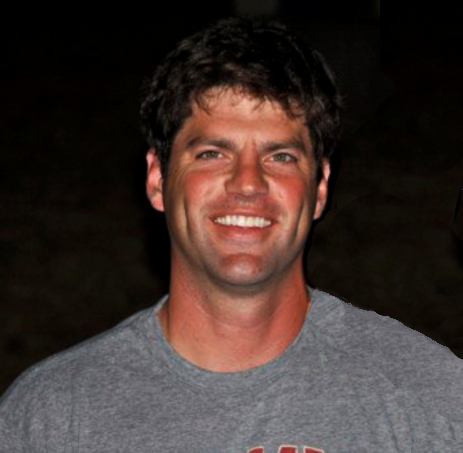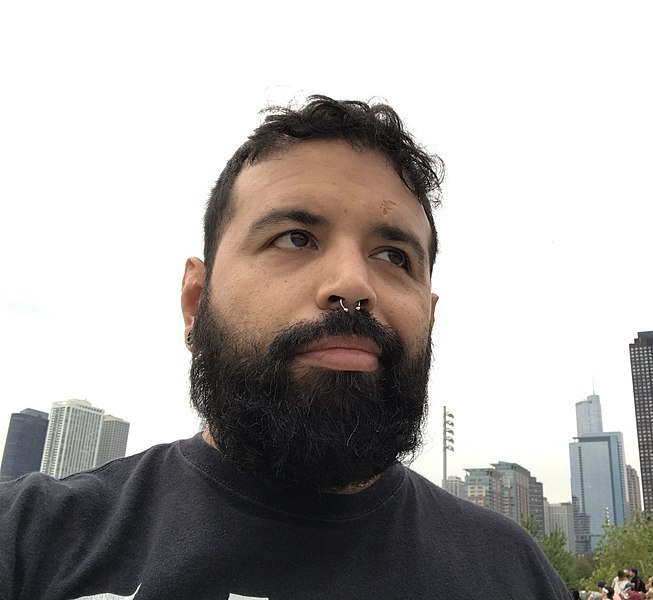
Image: File:Jay Rowland headshot.png, Bovina17, CC BY-SA 4.0 via Wikimedia Commons.
When Jay Rowland heard he would be adding content to Wikipedia as a class assignment, he was excited for what he would learn. “I thought that it would be good to learn how to edit Wikipedia articles,” says Jay. Wikipedia is a resource that students use all the time, but often without the robust digital literacy skills to discern the trustworthiness of what they’re reading. By learning how to create and expand Wikipedia articles as an assignment, students learn the ins and outs of the platform, gaining valuable information literacy and research skills in the process.
Not only is the assignment greatly beneficial for students, but the impact of their work also extends beyond the classroom. Most Wikipedia articles are comprehensive and well-sourced, but when it comes to academic topics, articles are incomplete or simply missing. That’s where students can make a difference. Thousands of higher education instructors have taught their students how to create and expand Wikipedia content using our tools and support, making the online encyclopedia better for all future readers.
Jay improved the article about Evacuation in the Soviet Union, a mass migration of people and industries out of the Soviet Union during German military occupation in 1941. The topic fit well within his course, Stalinism Society and Culture in the USSR, 1924-1953, taught by Dr. Benjamin Beresford at Arizona State University.

Image: File:Me in Chicago.jpg, Joecantu1134, CC BY-SA 4.0 via Wikimedia Commons.
Jay worked with a number of other students in his class to improve the article, including Joe Cantu. Joe spoke to the different nature of a Wikipedia assignment as compared to a traditional research paper. “Typically I have always written persuasive essays. But when writing for Wikipedia you have to present just the facts, without bias.” Encyclopedic writing differs heavily from argumentative writing in this way. Often students find that writing a paragraph on an encyclopedia can be just as much work as a whole paper, sometimes more. It’s an exercise in conciseness; students must include only essential and well-sourced information in the final product. Students often consult many more sources than in a traditional research paper, as well. The Evacuation in the Soviet Union article, for example, now boasts 35 distinct sources in its reference section, as opposed to the 4 that were cited before the students improved it.
With a world audience, Dr. Beresford’s students felt pressure to present accurate, thorough information. “It wasn’t until I saw the many steps and procedures that it took to create the article that I became a little hesitant in not wanting to put wrong information into the subject,” says Jay. “Wikipedia is not accepted as a reliable source, but it is a website that is constantly viewed by everyone to get acquainted with the topic or subjects one is investigating.” Although Jay felt an added pressure to produce quality work, the public audience aspect of the assignment was also his favorite part. Producing an article that millions could use to learn something new was exciting, “just knowing that you had a part in creating that.”
The students’ hard work paid off. Not only is the improved article well-written and well-sourced now, but Jay finds pride in having made it better with his classmates. “Compared to a traditional class assignment, the Wikipedia project was more fulfilling in that I can always go back to the Evacuation in the Soviet Union article and still make edits if new material arises or make grammatical adjustments to previously written paragraphs or sentences that we initially missed.” Take a look at the dramatic difference in the before and after!
Taking the time to improve Wikipedia does a public service to so many more people beyond the classroom. “We need to make Wikipedia somewhat of a reliable first stop for students, because we know they are looking at this website first. Everybody does,” Jay says, “More colleges and universities need to participate in the drafting and editing of Wikipedia articles in the future. Think of the millions of reports or papers that students write every year.” That hard work could instead be channeled into a public resource for the benefit of all.
If you want to learn more or incorporate Wikipedia into your own course, visit teach.wikiedu.org or reach out to contact@wikiedu.org with questions.
